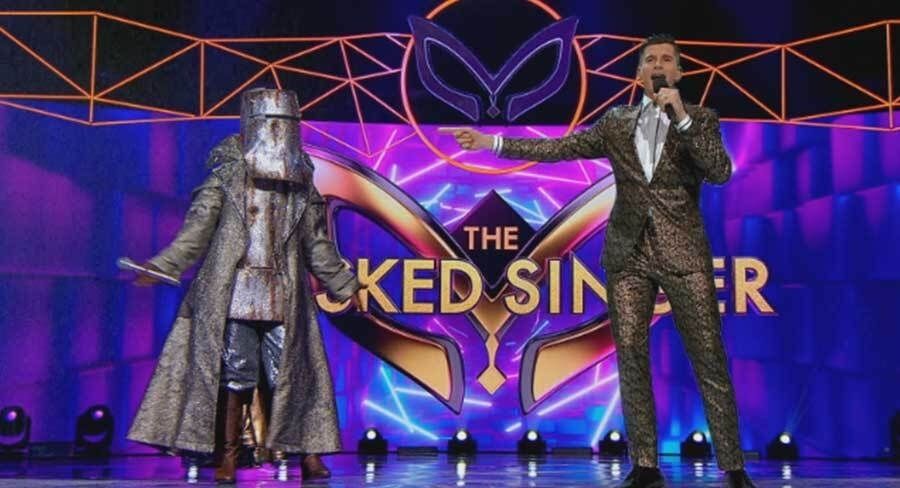The Masked Singer Australia finale had one final reveal on Monday as the Bushranger was revealed to be Neighbours star Bonnie Anderson and the winner of season two of Network 10’s popular singing show.
The show posted a national total average audience of 1.23 million viewers, including a capital city total audience of 915,000.
While Anderson went home the winner, the biggest accomplishment of the night might have been that the show went to air on its original air date after a series of production hurdles.
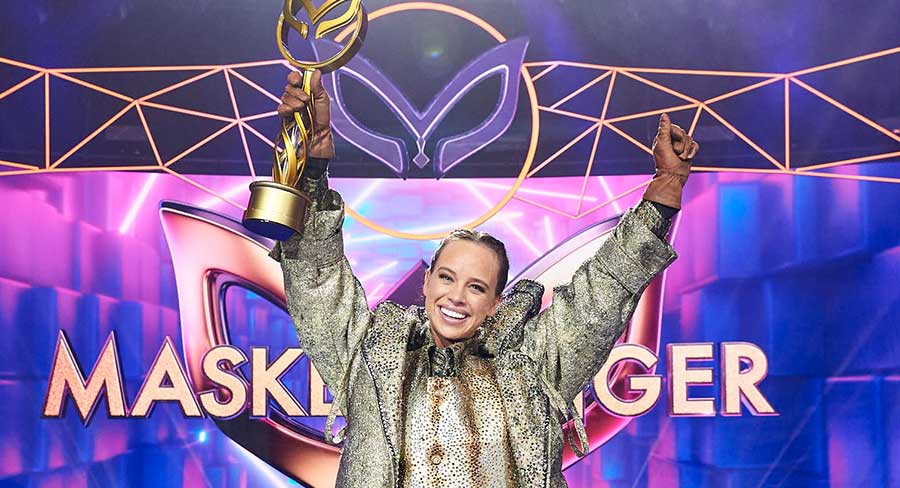
After several crew members of the show tested positive for Covid-19 hours away from the filming of the final episode, the show was put on hold and everyone, including the judges and host, went into two weeks of quarantine.
The Masked Singer Australia finale was rescheduled to record with feeds streaming in from different locations with a five-day deadline, with the show filmed across two countries, two states, two studios and a hotel room.
Those two countries were Australia and New Zealand, the states were NSW and Victoria, the two studios were Docklands in Melbourne where the rest of the season was shot and 10’s Pyrmont studios. The hotel room belonged to Urzila Carlson back in quarantine in Auckland after returning from Melbourne.
Panellists Dave Hughes and Dannii Minogue stayed in Melbourne along with the three remaining singers who took part in the last episode. Sydney-based panellist Jackie O, host Osher Günsberg and many of the Warner Bros creative team were in 10’s Sydney studio.
The post-production facility used for the show was City Post which has been the post house for shows like The Dr Blake Mysteries, My Life is Murder and BAFTA-winning/ Emmy-nominated The Cry.
Mediaweek spoke with Nadia Diggins, City Post’s operations manager, about what it was like being a key cog in the production of the show with so many moving parts during the pandemic.
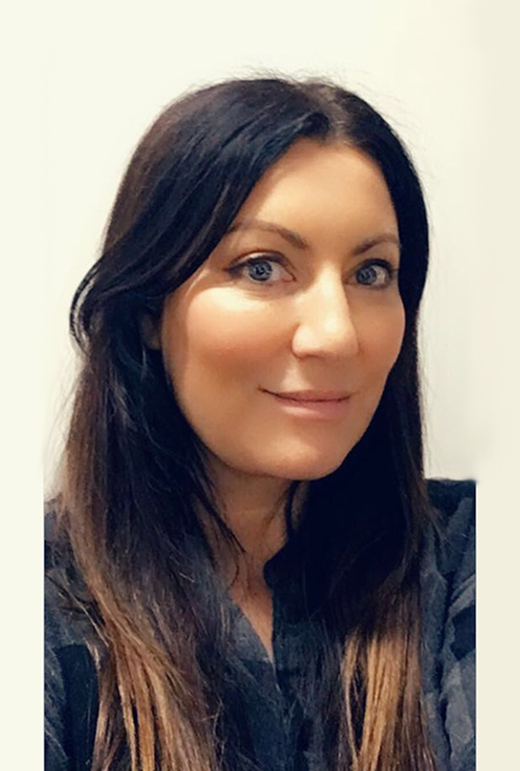
Nadia Diggins
“We were literally about to record the finale – eight hours later and it would have been recorded. We had to close everything down and everyone went into quarantine for 14 days, but they still wanted to keep the original transmission date. So we recorded the finale on the Tuesday with Osher having a feed in Studio 10 in Sydney with Jackie O, and Urzila was in her hotel.
“They pulled the key through the desk so Osher appeared as a hologram of sorts, and we had to put him in there which required replacing some of the shots because the link would break up and he would freeze. Through all of his shots we used reflection maps and that sort of thing to sit him in the environment with Jackie O. Urzila recorded her feed on her laptop so hers was a bit more limited.”
“We came in on the Wednesday and it was picture locked on the Saturday morning, graded, and then mixed, and we ended up delivering on the day of transmission on the Monday. It proves you can pivot in this environment.”
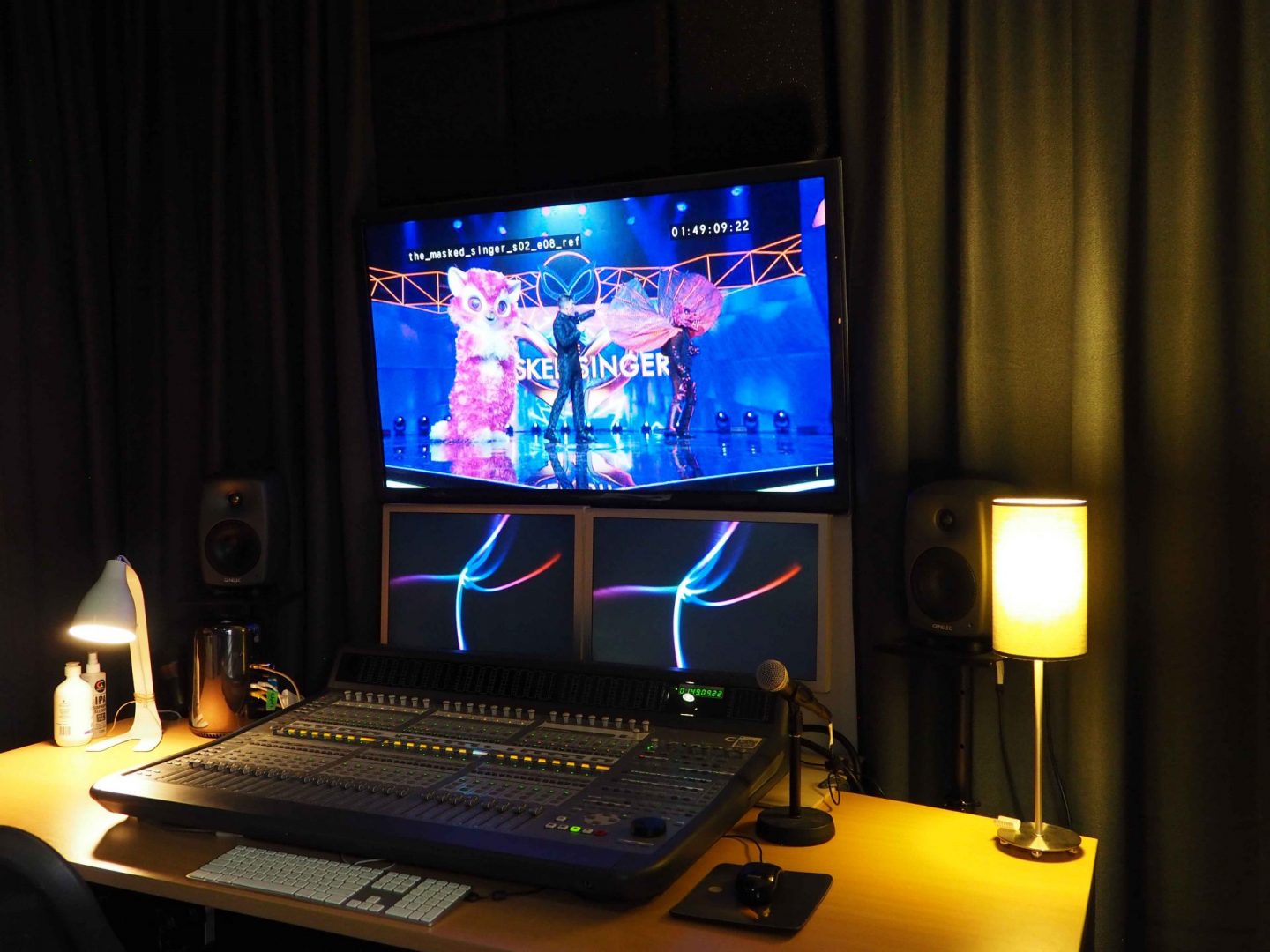
See more: How Covid couldn’t stop 10 & Warner Bros finishing The Masked Singer
Diggins said that she had experienced tight turn arounds before but this pandemic-induced challenge presented its own unique situation.
“I have worked on a lot of live television and tight turn around formats like The Voice but nothing quite like this with the geographical distance of key members of the show in remote locations.”
“It would have been nice to have more time to turn things around and go back to the original green screen for a lot more of the shots. But we had a fantastic team whereby everyone was happy to roll up their sleeves.”
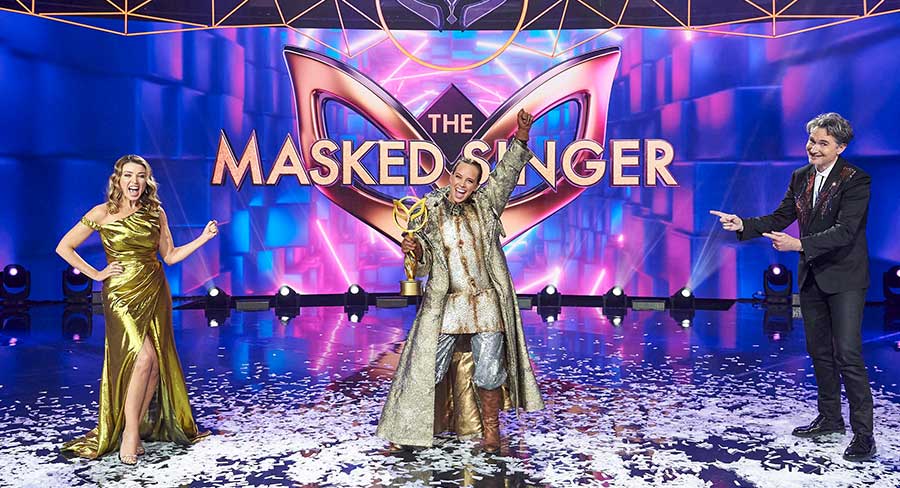
The silver lining according to Diggins is that the process has opened up the possibility of new ways of approaching projects like The Masked Singer Australia in the future.
“I think there have been reservations in the past to have remote setups because people feel being a creative industry we need to be in the same environment to effectively collaborate. For a long time, Sydney has really been a bubble where all the work has been focused which meant you had to relocate to Sydney. But it is nice to see the technology is there and it can be just as creative in another state or another country.”
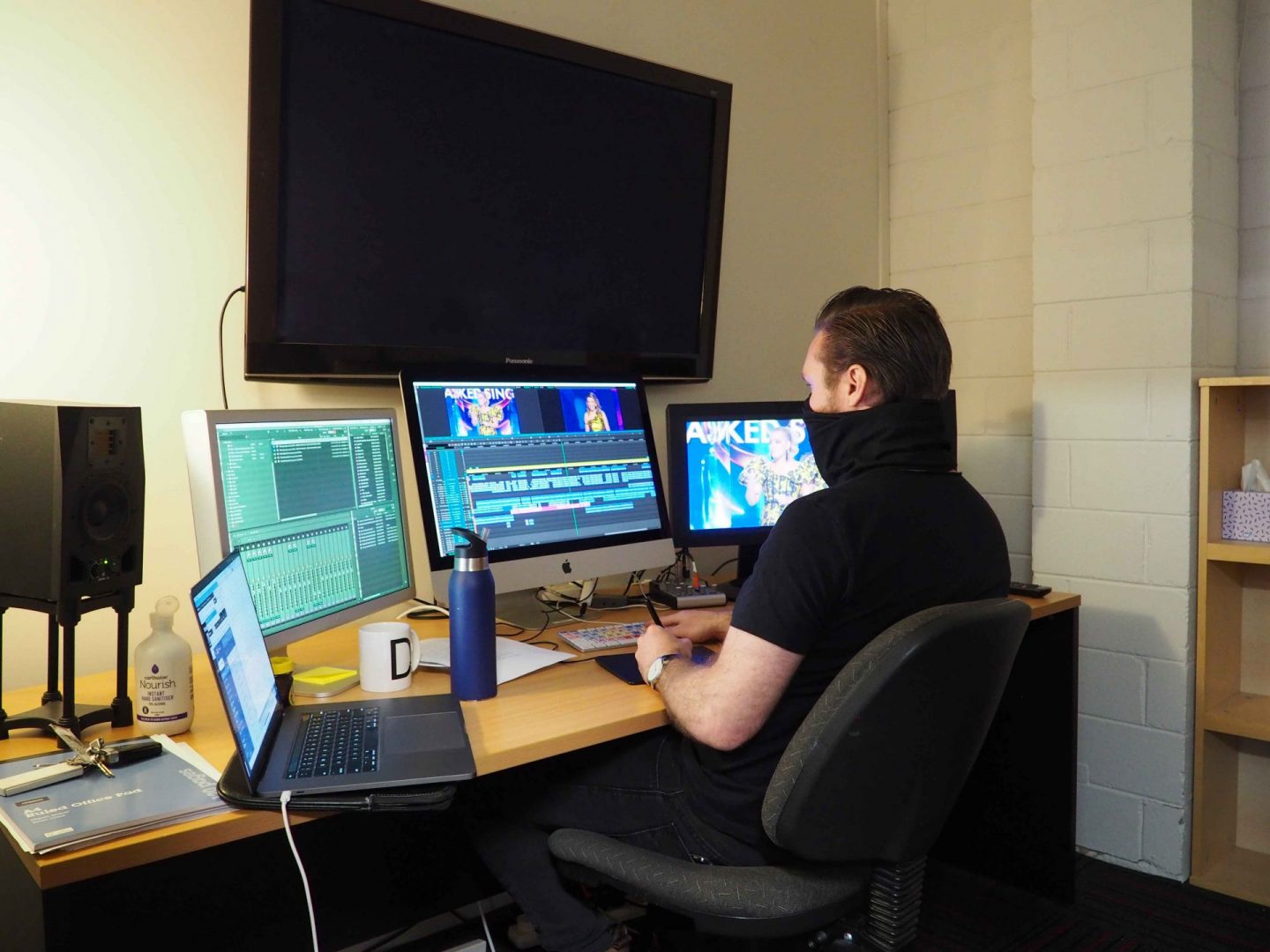
Network 10 executive producer and head of entertainment Stephen Tate told Mediaweek: “What the finale became was a technical feat and it got the best out of our crews that I have ever seen. To produce a show out of two countries, two states, two studios…and a hotel room…is not something I have ever done before, nor would many of the crew have ever done before.
